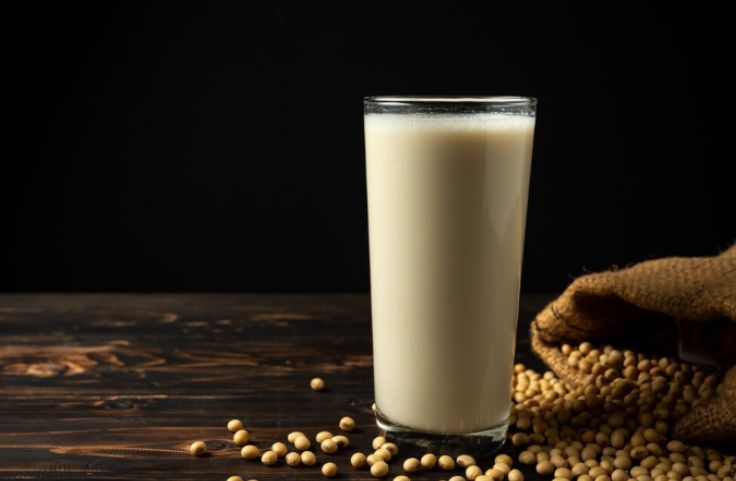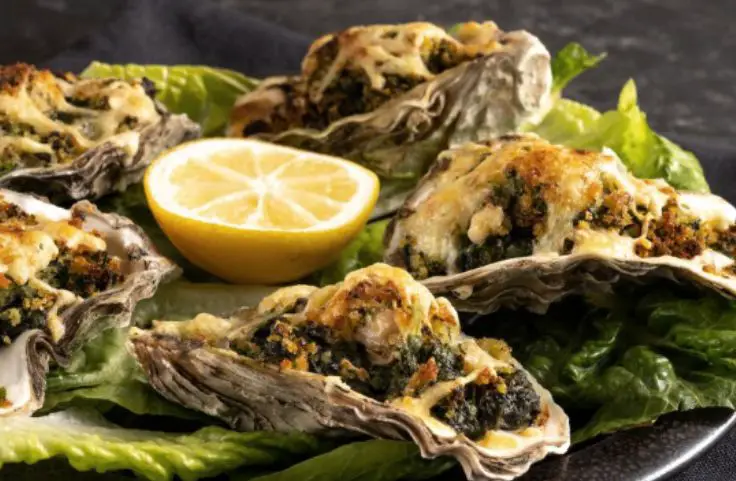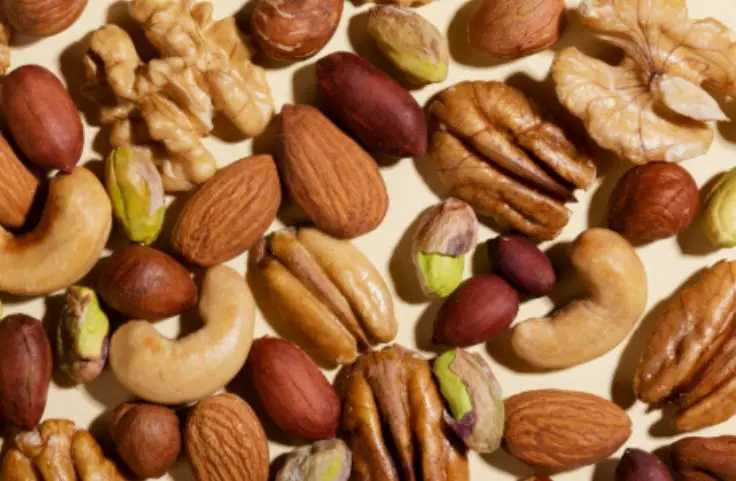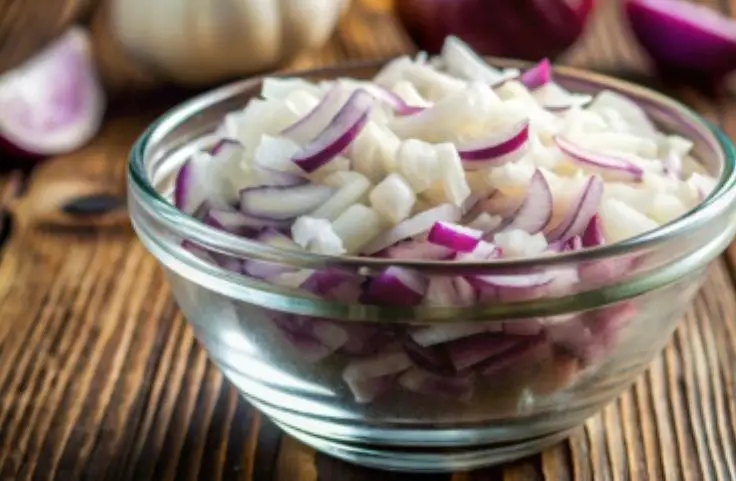Last updated on November 10th, 2025 at 07:51 am
Foods that increase testosterone naturally support hormone balance, muscle growth, and energy. Add these natural boosters to your meals and help your body produce testosterone in a healthy, sustainable way.
You don’t need complicated routines or fancy supplements to support your hormones. Sometimes, the answer starts with your plate.
The truth is, the foods you eat every day can either support or drag down your testosterone levels.
If you’re feeling tired more than usual, noticing a dip in muscle strength, or your drive just isn’t what it used to be, your diet might be part of the problem, and the solution.
That’s why it’s smart to pay attention to foods that increase testosterone naturally.
From protein-packed meats to healthy fats and nutrient-rich vegetables, the right food choices can help you feel stronger, more focused, and balanced.
In this post, you’ll find what to eat, why it works, and how to fit these testosterone-friendly options into your meals with ease.
The Link Between Diet and Testosterone Levels
What you eat has a direct impact on your testosterone levels.
Foods rich in healthy fats, quality proteins, and key nutrients like zinc, vitamin D, and magnesium support hormone production and balance.
Avocados, olive oil, fatty fish, eggs, nuts, and leafy greens are excellent choices for boosting testosterone naturally.
Protein from lean meats, legumes, and fish also plays a role in muscle development and hormone health.
On the flip side, processed foods high in sugar, trans fats, and excess alcohol can reduce testosterone by disrupting insulin and hormonal function.
The key is to focus on whole, nutrient-dense foods and cut back on habits that interfere with hormone production.
With the right dietary choices, you can support your body’s ability to produce testosterone and maintain better overall health.
Related Posts
How to Measure Testosterone Levels in Men
Testosterone Level Boosting Habits
How to Boost Your Energy with This Early Morning Routine
Signs You are battling with Low Testosterone
Best Testosterone Boosters for Men Over 40
Men’s Health and Wellness Guide
What Every Man Should Expect after 50
Testosterone-Boosting Foods to Add to Your Diet
Eating with testosterone in mind doesn’t mean overhauling everything. Just a few smart changes can go a long way.
These foods give your body what it needs to support natural testosterone production.
Fatty Fish: Omega-3 Power for Hormone Support

When you add salmon, mackerel, sardines, or tuna to your plate, you’re doing more than just eating for heart health; you’re giving your hormones the support they need.
These fatty fish are rich in omega-3 fatty acids, which play a role in testosterone production and can help lower inflammation, reduce stress levels, and improve overall well-being.
Omega-3s may also support reproductive function and help balance other hormones that affect testosterone.
Try including at least two servings of fatty fish each week.
Grilled, baked, or tossed into salads, it’s an easy way to boost your hormone health naturally through your meals.
Eggs: Cholesterol and Vitamin D for Testosterone

According to Dr. Berg, eggs are one of the simplest and most effective foods for boosting testosterone levels.
The yolk contains healthy cholesterol, which your body uses to make testosterone.
It also offers vitamin D, a nutrient that supports hormonal balance and is commonly low in many diets.
Eating whole eggs ensures you get these benefits without needing supplements.
You can prepare them boiled, scrambled, or poached to suit your taste.
Starting your day with eggs gives your body a steady source of fuel and nutrients it can use to produce testosterone naturally and support energy, focus, and recovery after exercise.
Leafy Greens: Magnesium for Free Testosterone

Spinach, kale, collards, and Swiss chard offer more than fiber and vitamins.
They’re loaded with magnesium, a mineral tied to higher levels of free testosterone, the active form your body can use.
Magnesium also supports sleep, reduces stress, and improves muscle function, all of which contribute to better hormonal health.
These greens are easy to add to your meals: toss them into smoothies, stir them into soups, or sauté them with garlic and olive oil.
One or two servings a day can make a real difference in supporting testosterone production and keeping your body in hormonal balance.
Pomegranate: Antioxidants that Work for Hormones

Pomegranate has long been celebrated for its antioxidant content, and research shows it may also benefit testosterone levels.
The antioxidants found in pomegranate juice and seeds help protect cells from oxidative stress, which can interfere with hormone production.
Regular consumption of pomegranate has been linked to improved mood, lower cortisol, and higher testosterone.
A glass of 100 percent pomegranate juice in the morning or a handful of seeds on a salad can be a simple addition to your routine.
It’s a natural and flavorful way to help your body stay in balance and support your testosterone goals.
Fortified Plant Milks: A Dairy-Free Vitamin D Source

If you avoid dairy, fortified plant milks are a smart alternative for getting the vitamin D your hormones rely on.
Almond, soy, oat, and rice milk are often enriched with this important nutrient, which plays a part in maintaining healthy testosterone levels.
Vitamin D deficiency is common and can affect how well your body produces hormones.
Including a glass of fortified milk in your morning routine or using it in your cereal, smoothies, or coffee can make a big difference.
Just check the label to confirm your choice contains vitamin D and calcium for added hormonal and bone support.
Avocados: Healthy Fats that Feed Your Hormones

Avocados are rich in monounsaturated fats, vitamin E, and several B vitamins, all nutrients that help support testosterone production.
These fats are important for keeping your cholesterol levels in check, which affects how well your body can create hormones.
Avocados also contain fiber and potassium, which contribute to better energy and heart health.
You can add them to toast, blend into smoothies, or mix into salads and bowls.
A few slices a day can give your body the building blocks it needs for hormone health and keep you feeling satisfied after meals without relying on processed snacks or oils.
Oysters: The Zinc-Rich Testosterone Booster

Oysters are famous for their effect on libido, but their real benefit lies in their zinc content.
Zinc is one of the most important minerals for testosterone production and overall hormone balance.
Just a few oysters provide more than your daily recommended intake, making them one of the richest dietary sources of this vital nutrient.
If you’re not a fan of oysters, you can still get zinc from pumpkin seeds, beef, and cashews.
But if you enjoy seafood, including oysters once or twice a week, it can be a simple way to keep your testosterone levels supported through diet alone.
Lean Red Meat: Protein and Zinc in One Plate

Lean cuts of red meat like sirloin, tenderloin, or lean ground beef provide two key nutrients for testosterone: protein and zinc.
Protein supports muscle repair and hormone production, while zinc helps your body maintain proper testosterone levels.
While red meat can be helpful in moderation, it’s important to balance it with plenty of vegetables and whole grains to support overall health.
Stick to small portions a few times a week and avoid processed or fatty cuts.
Grilled, roasted, or added to stews, lean red meat can be a nourishing way to give your hormones what they need.
Nuts: Healthy Fats that Fuel Hormone Health

Almonds, walnuts, and Brazil nuts are packed with healthy fats, selenium, and other nutrients that may help increase testosterone.
Selenium is especially important for hormone balance and antioxidant protection, while the fats help your body build the cholesterol it needs for testosterone production.
A small handful of nuts a day can support energy, curb hunger, and fuel hormone function.
You can snack on them raw, add them to yogurt or oatmeal, or turn them into nut butter for a more filling spread.
Just stick with unsalted versions to keep your sodium intake in check and let the nutrients shine.
Garlic and Onions: Flavor That Lowers Cortisol

Garlic and onions are more than just flavor boosters; they contain compounds that may help reduce cortisol, the stress hormone that competes with testosterone.
Lowering cortisol creates more room for testosterone to function properly.
Garlic contains allicin, which supports hormone balance, while onions may help increase levels of luteinizing hormone, a hormone that triggers testosterone production.
Sauté them into your favorite meals, add them raw to salads, or roast them whole for extra depth.
These simple additions to your meals not only support hormone health but also keep your food interesting and full of flavor without extra salt or sugar.
Supporting Nutrients That Help Boost Testosterone
Your body needs more than just calories to stay in balance.
The right nutrients help support testosterone levels and keep your hormones working as they should.
Here’s what to look for in your meals.
Magnesium: A Quiet Workhorse for Hormone Support
You may not think much about magnesium, but your body relies on it for hundreds of processes, including testosterone production.
Low magnesium levels can lead to poor sleep and higher stress, both of which affect your hormones.
Spinach, almonds, and black beans are solid sources and easy to include in your meals.
Whether it’s a handful of nuts or a bowl of greens, a little goes a long way in helping your body stay on track.
Zinc: The Mineral Your Hormones Count On
Zinc plays a direct role in testosterone production. When your zinc levels drop, so can your testosterone.
You can keep your intake steady with foods like oysters, pumpkin seeds, lentils, and lean beef.
These options not only support your hormones but also strengthen your immune system.
A few servings a week are all you need to help protect your testosterone levels and keep your body in balance.
Vitamin D: Sunlight and Food Working Together
Vitamin D is tied closely to testosterone, and many people don’t get enough of it, especially if they spend most of their day indoors.
Fatty fish like salmon, fortified milk, and mushrooms can help fill the gap.
Getting some sun when you can adds another layer of support.
If you live in a place with limited sun, a supplement might be helpful, but always check with your doctor first.
Boron: Small Nutrient with Big Impact
Boron doesn’t get much attention, but it may help boost testosterone by lowering sex hormone-binding globulin, which frees up more testosterone for your body to use.
You’ll find boron in foods like avocados, prunes, and raisins.
These are easy to add to your daily meals, slice up an avocado on toast, or toss some raisins into your oatmeal. Simple choices like these can make a big difference.
Selenium: A Micronutrient That Supports Balance
Just one or two Brazil nuts a day can give you all the selenium your body needs.
This trace mineral helps your thyroid and may play a part in testosterone metabolism.
You’ll also find selenium in tuna, shrimp, and sunflower seeds. It doesn’t take much, but regular intake supports hormone health in a quiet, steady way.
Add a few of these foods into your snack or lunch rotation.
Omega-3 Fatty Acids: Hormone Health from Healthy Fats
Omega-3s support your heart, your brain, and yes, your hormones.
They may help lower inflammation and balance cortisol, which in turn supports testosterone production.
You’ll find these healthy fats in fatty fish like mackerel and sardines, as well as flaxseeds and chia seeds.
Grill some fish for dinner or stir seeds into your smoothie for a hormone-friendly boost without extra effort.
Foods to Limit That Lower Testosterone
Some foods work against your hormones, even if they’re easy to reach for.
If you’re trying to support healthy testosterone levels, it helps to know what to cut back on and why.
Processed Sugar: A Hidden Hormone Disrupter
You already know that sugar can lead to weight gain, but it also messes with your hormones.
High sugar intake spikes insulin, which can lower testosterone over time.
Many packaged foods, even those that seem harmless, are packed with added sugar.
Try checking labels and cutting back on soda, sweets, and refined carbs.
Your blood sugar stays more stable, and your testosterone has a better chance of staying in balance.
Junk Food: Empty Calories That Hurt Hormones
Burgers, fries, packaged snacks, and frozen meals may taste good, but they don’t support your testosterone.
These foods are usually high in trans fats, low in nutrients, and loaded with preservatives that can mess with your endocrine system.
Eating too much junk food is linked to weight gain and increased body fat, both of which lower testosterone.
Swapping these for whole foods can make a real difference in how you feel and function.
Alcohol: A Hormone Blocker in Disguise
The occasional drink might not hurt, but drinking too much or too often can lower testosterone.
Alcohol disrupts the way your liver processes hormones, and when the liver is overworked, testosterone production slows down.
Long-term drinking is also linked to higher estrogen levels in men.
If you want to keep your hormones in balance, try to drink in moderation and give your body regular breaks from alcohol.
Soy Products: Estrogen-Like Compounds That May Interfere
Soy contains phytoestrogens, plant compounds that can mimic estrogen in your body.
While soy in small amounts is unlikely to cause harm, consistently eating large quantities of soy-based products like tofu, soy milk, and soy protein may affect testosterone.
If you’re working on balancing your hormones, keep an eye on how much soy you’re including in your meals and balance it with other sources of protein.
Processed Vegetable Oils: Inflammation and Hormonal Imbalance
Oils like soybean, canola, and corn oil are common in processed foods and restaurant meals.
These oils are high in omega-6 fatty acids, which can trigger inflammation when not balanced with omega-3s.
Some processed oils also contain trans fats, which are known to disrupt hormone levels.
Try switching to olive oil, avocado oil, or other minimally processed options. A simple change in cooking oil can support healthier testosterone levels.
Frequently Asked Questions
What foods raise testosterone the most?
Oysters, fatty fish, eggs, and leafy greens are among the top foods known to naturally support healthy testosterone levels through vital nutrients.
How can I boost testosterone through diet?
Eat foods high in zinc, magnesium, vitamin D, and healthy fats. Avoid processed sugar and alcohol, and focus on whole, nutrient-rich meals consistently.
Do bananas increase testosterone?
Bananas contain bromelain, which may help support testosterone production. They also supply B vitamins and potassium, important for energy and hormonal balance.
Are eggs good for testosterone?
Yes, eggs are rich in cholesterol and vitamin D, two key components that support testosterone synthesis. Whole eggs offer the best hormonal health benefits.
Conclusion
Adding foods that increase testosterone naturally to your daily meals can help you feel stronger, more energetic, and balanced.
You don’t need extreme diets or supplements, just consistent, smart food choices.
Focus on whole foods like fatty fish, eggs, leafy greens, nuts, and shellfish. Pay attention to nutrients like zinc, magnesium, vitamin D, and omega-3s.
At the same time, cut back on processed sugar, junk food, and alcohol.
These small changes support your body’s ability to produce testosterone efficiently.
What you eat can shape how you feel; make it count every day with meals that support your hormones from the inside out.
Pyo Merez is a men’s lifestyle enthusiast and writer about the gentleman’s place and impact on society. Raised by a distinguished gentleman dad, he offers unique insights into how the mind of a gentleman works and how societal norms shape gentlemen’s identity and vice versa.
Through his insightful articles, Pyo taps into the depths of gentleman culture to provide perspectives on etiquette and manners in modern society.

